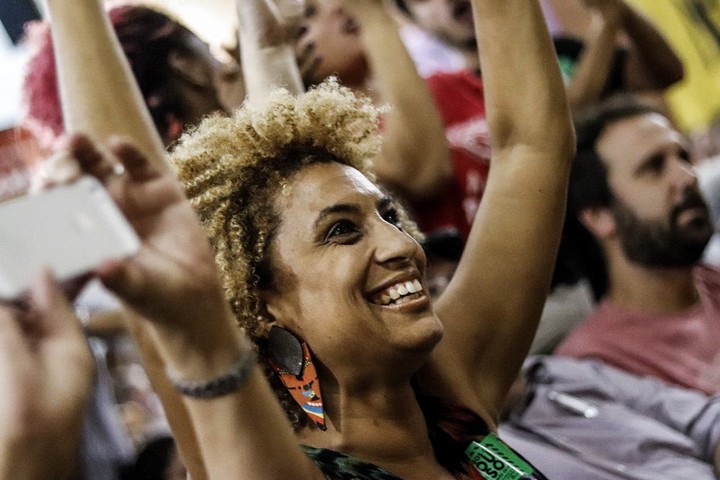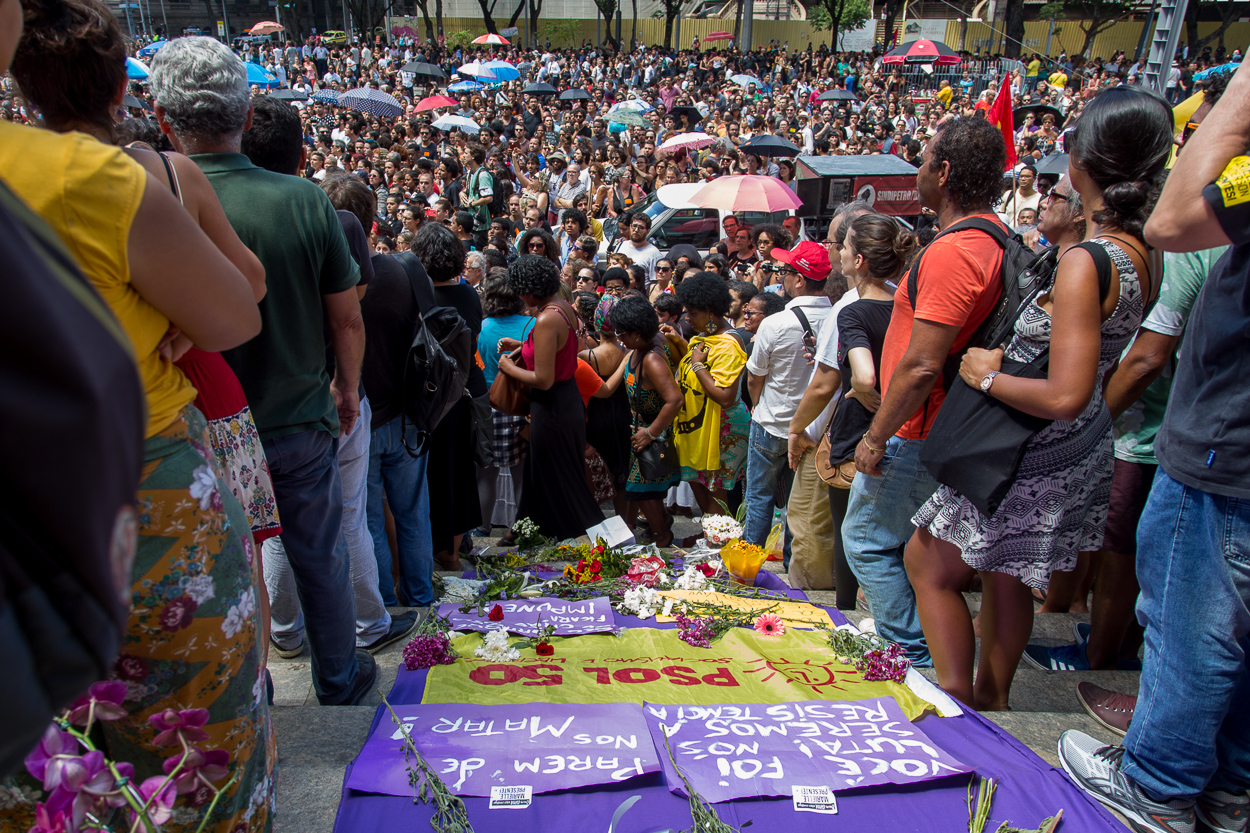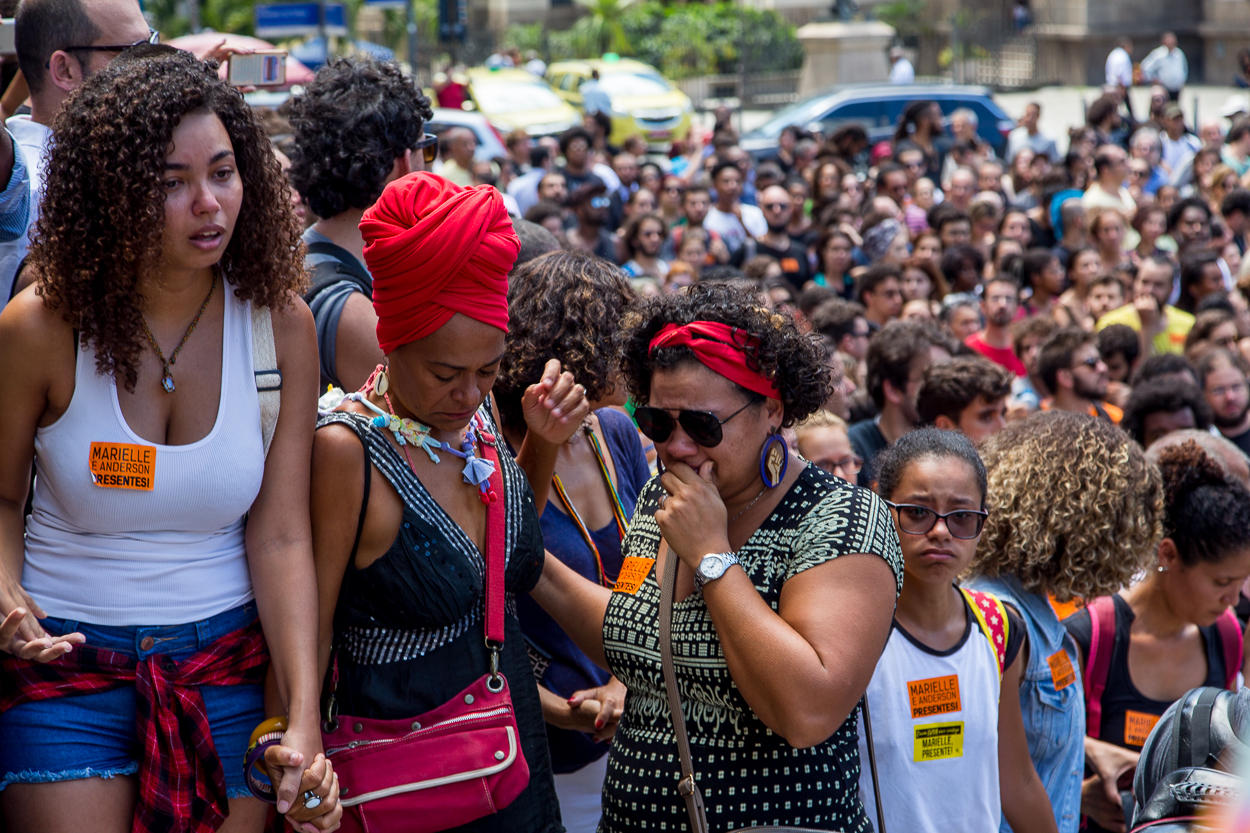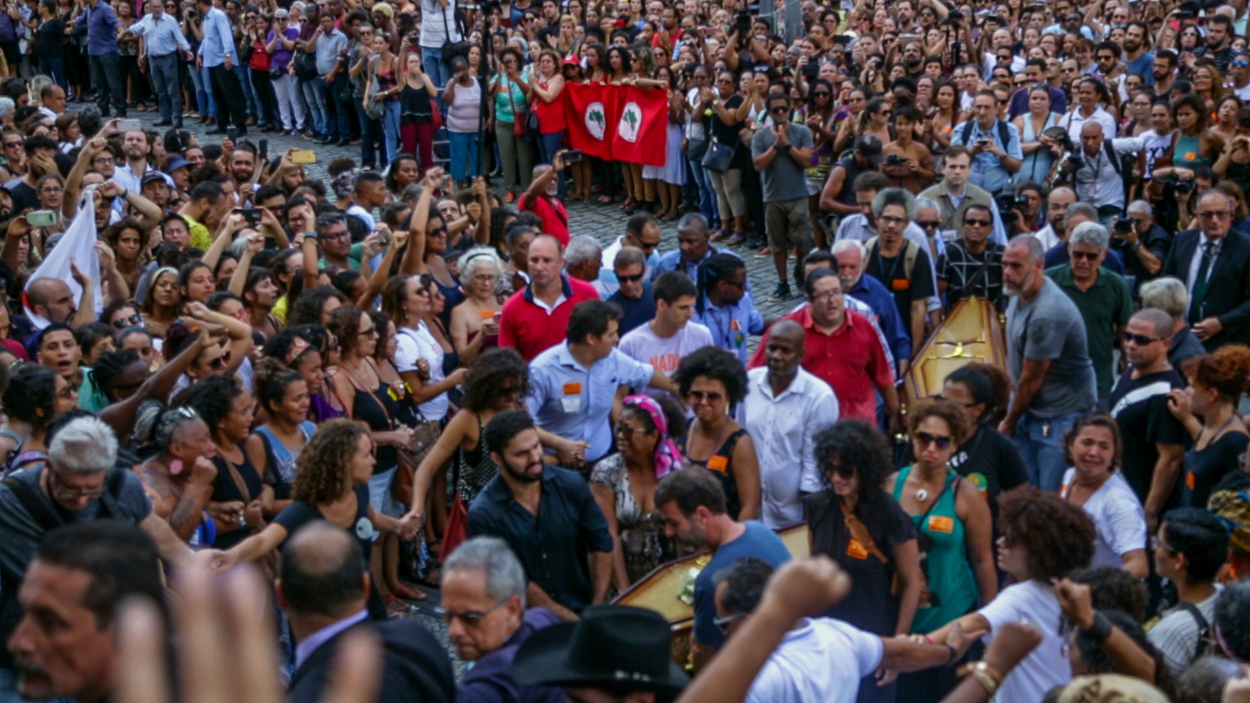-
Content Count
1,030 -
Joined
-
Last visited
Posts posted by James Dean
-
-
-
-
Venice Bitch
in NFR!
-
-
-
-
Gays please don't pretend lula is innocent lol
Inocente ninguém é, a prisão que é ilegal e o processo que é cheio de nulidade. É só estudar que talvez você entenda como analisar melhor a situação! Não ta fácil!
Olha não quero ser chato contigo. Você tem todos os motivos pra não gostar do PT, eu também acho que a coisa tem que oxigenar. Mas eu vou te alertar: É preocupante ver pessoas que não estudaram Processo Penal defendendo os procedimentos do juir Sérgio Moro (incluindo a condenação). Até meu professor mais conservador critica os procedimentos que ele adota. E vou te falar: é relativamente fácil de encontrar uma forma de condenar a parte num processo cheio de nulidades. Boa sorte em fingir que Lula é culpado, continua reproduzindo o discurso que o sistema quer que tu reproduza sem questionar ou estudar, tá funcionando, não esquece que o judiciário prendeu o Rafael Braga por um pinho sol. Abração pra ti :*
I didn't knew that, she's a fcked up racist and homophobic too.
+ thanks James Dean for your explanations on the topic, how many times is he supposed to be the President ?
Thats the first time

-
Thats a long story. SORRY FOR MY ENGLISH SO FUCK THAT
He found great support with two arguments ...
The first: He said the government has created a 'gay kit' to teach children to be gay. That's a lie, the real project ("Schools without homophobia") was rejected in 2011. He's still talking, as if existed, he shows a book with sexual content for teenagers and says it's a part of the 'gay kit', and its another lie, children dont even have food on school, and he says: "I'm not going to show this book, you can find on public schools'. PEOPLE CONTINUE TO BELIEVE, they are on whatsapp believing on fake news.
The second: we suffer a coup d'état. Our Judiciary power is corrupted, but there is a large part of the population that believes in this power and has it as absolute truth. They managed to demoralize the potical party that has long been in power, arresting one of the country's most popular politicians, Lula. It is a bit sad to see people believing in the judiciary, I study the laws, I do law school, I studied the process, and well, everyone in the legal field knows that these lawsuits were full of nullities and incorrect procedures. (stupid people argue that such procedures not provided for by law should be allowed to guarantee conviction, unfortunately it is a very questionable thought for anyone who really deals with Law)
Nope, that's the worse part. People really believe he's the best option. Conservative forces in Brazil have grown a lot lately - people want liberation of the guns, people are against homossexuals, etc.
We have a very complex scenary because our latest goverment spent almost 15 years in power and became very unpopular, we had an impeachment and all. So Bolsonaro kinda represents a (fake) renovation
gay tu trata de votar no 13 se não eu vou ser a primeira a morrer
-
If you have time, can you please read these articles? We are having a bad time here in Brazil.
How a homophobic, misogynist, racist ‘thing’ could be Brazil’s next president
https://www.theguardian.com/commentisfree/2018/oct/06/homophobic-mismogynist-racist-brazil-jair-bolsonaro
Jair Bolsonaro is the monstrous product of the country’s silence about the crimes committed by its former dictatorship
Many people in Brazil cannot bring themselves to utter the name of the rightwing extremist expected to win the first round of voting in the country’s presidential election on Sunday. On social networks, the former army officer Jair Bolsonaro is often referred to simply as “the thing”.
To understand why Bolsonaro evokes such dread, consider some of the things he has said in the last few years:
• “I had four sons, but then I had a moment of weakness, and the fifth was a girl.”
• “I’m not going to rape you, because you’re very ugly” – to a female representative in Congress.
• “I’d rather have my son die in a car accident than have him show up dating some guy.”
Advertisement
• “I’m pro-torture, and the people are too.”
• “They don’t do anything. I don’t think they’re even good for procreation any more” – referring to quilombolas, the black descendants of rebel African slaves.
• “You can be sure that if I get there [the presidency], there’ll be no money for NGOs. If it’s up to me, every citizen will have a gun at home. Not one centimetre will be demarcated for indigenous reserves or quilombolas.”
• “You won’t change anything in this country through voting – nothing, absolutely nothing. Unfortunately, you’ll only change things by having a civil war and doing the work the military regime didn’t do. Killing 30,000, starting with FHC [former president Fernando Henrique Cardoso]. Killing. If a few innocent people die, that’s alright.”
Bolsonaro has also said he will not accept the election result unless he is the winner – only to backtrack after a negative reaction.
When president Dilma Rousseff of the Workers’ party (PT) was forced from office in 2016 through an impeachment process of dubious legal merit, Bolsonaro viciously dedicated his vote “to the memory of colonel Carlos Alberto Brilhante Ustra”. Ustra was one of the most sadistic torturers and murderers in the military dictatorship that choked Brazil between 1964 and 1985. He died without answering for his crimes.
For this election, Bolsonaro’s children and supporters have printed the torturer’s face on their T-shirts, with the phrase “Ustra lives!”.
By celebrating Ustra, Bolsonaro has rekindled the horror of that period. And he can do it only because Brazil has never punished those who tortured, kidnapped and killed in the name of the state. Bolsonaro is the monstrous product of Brazilian democracy’s silence about the crimes committed by its former dictatorship.
In August, Ludimilla Teixeira, a black anarchist born in one of the poorest communities of Salvador, Bahia, created a Facebook page: Women United Against Bolsonaro. The page, which accepts only female followers, now has almost 4 million of them. A movement grew out of this group, last week spurring hundreds of thousands of women – and men – on to the streets of Brazil and around the world. Many carried banners with the slogan and hashtag: #EleNão – #NotHim. It was the biggest demonstration organised by women in Brazil’s history.
Famous Brazilian women recorded videos explaining why #NotHim. Considering everything the far-right candidate has said in public, such explaining might seem unnecessary, but this is a feature of today’s Brazil – and today’s world.
Explaining hasn’t had any effect. Bolsonaro is less a post-truth phenomenon than a phenomenon of what I call self-truth. The content of what he says doesn’t matter: what matters is the act of saying it. Aesthetics have replaced ethics. By saying everything and anything, no matter how violent, he is labelled truthful or sincere by his voters at a time when politicians are being shunned as frauds and liars. At the same time, “truth” has become an absolute and a personal choice. The individual has been taken to a radical extreme.
Bolsonaro, “the thing”, is a retired army captain. He’s being sold as new to voters, but he’s anything but. In his 26 years as a federal lawmaker, he managed to pass only two of his proposed laws.
Meanwhile, his running mate, retired general Hamilton Mourão, has said publicly that, if elected, the president could launch a self-coup backed by the military.
Bolsonaro embodies the grimmest forces of old and new Brazil. Most grileiros (public land grabbers) and big farmers support him in the Amazon – one of the regions that will be hit hardest if he is elected. Brazil ranks as the deadliest country for environmental activists, and there is the grave potential for violence to explode, along with greater deforestation, if Bolsonaro wins.
In the cities, he has the support of the leaders of evangelical religious empires, who defend the concept that marriage is possible only between a man and a woman. The far-right candidate also leads among wealthier, more educated men, reflecting the calibre of the Brazilian elites.
In addition to his staunch supporters, he attracts a slice of the population that is simply anti-PT. These people hate the PT for many reasons. Some because under former presidents Luiz Inácio Lula da Silva and Rousseff, the party reduced poverty, widened university access to black students, and strengthened rights for housemaids – for a long time, a form of modern slavery in Brazil. Others because they cannot forgive a party that rose to power promising change, only to become corrupted and aloof. Poor, mostly black, women are most vociferously against Bolsonaro.
During the first decade of this century, Brazil appeared to be a country that was finally reaching for the future. Now it seems mired in the past. The violence of this election has plunged Brazilians into a kind of collective convulsion. There is no other subject; people are starting to feel sick with fear. On the left, the reality of a dictator’s defender being the choice of 39% of voters, according to recent polls, is more frightening than any dystopian fiction.
A second round vote is due on 28 October – and most expect it to be a runoff between Bolsonaro and the Lula-backed PT candidate, Fernando Haddad. This election is promising to be more about an anti-vote – anti-PT or anti-Bolsonaro – than a vote for a project or ideas for the country, something Brazil desperately needs.
With the far-right candidate’s performance improving, his supporters are beginning to expect victory in Sunday’s first-round vote. The markets seem ecstatic about the possibility of a racist, misogynist, homophobic president: Brazil’s currency and stock index rallied as Bolsonaro’s poll numbers rose.
Whatever the outcome, Bolsonaro has already won: Brazil, plunged into a complex crisis, with 13 million people without jobs and poverty and child mortality rising again, goes to the ballot box without a proper debate and divided by hate. A perfect environment for “the thing” to grow and multiply and seize control.
• Eliane Brum is a Brazilian journalist, writer and documentary maker. This article was translated by Diane Grosklaus Whitty
New article after the votes:
Jair Bolsonaro wins Brazil vote but not outright victoryhttps://www.theguardian.com/world/2018/oct/08/jair-bolsonaro-wins-brazil-vote-but-not-outright-victory
Far-right candidate will have to top poll in second-round run-off to secure presidency
The far-right Brazilian populist Jair Bolsonaro has secured a resounding victory in the first-round of his country’s presidential election, but fallen just short of the majority required to avoid a second-round runoff.
After a campaign as improbable and electrifying as any Brazilian telenovela – although infinitely more consequential for the future of one of the world’s largest and most diverse democracies – Bolsonaro secured 46.93% of votes - with 94% of all votes counted.
The second-placed candidate, the leftist Workers’ party Fernando Haddad, won 28% of the vote, according to Brazil’s superior electoral court, the TSE. Behind him came the Democratic Labor party’s Ciro Gomes with 12.5%.
Those results mean Bolsonaro, who received more than 46m votes, and Haddad will face off for the presidency on 28 October in a second-round vote.
“The next few weeks are just going to be crazy. The country is just going to divide even more,” predicted Monica de Bolle, the director of Latin American Studies at Johns Hopkins University.
“It’s going to be a horrible campaign in the second round. It’s going to be one side smearing the other. Bolsonaro is going to be coming out with all the dirt on the PT [Workers’ party] – and there’s plenty of that. And the PT is going to be coming out with a lot of dirt on Bolsonaro – and there’s plenty of that too.”
Jubilant Bolsonaro followers gathered outside his beachside home in western Rio de Janeiro on Sunday evening to celebrate the result with fireworks and a barbecue.
Many of those present wore T-shirts emblazoned with Bolsonaro’s image and the slogan “É melhor Jair acostumando!” – a play on the politician’s name that roughly translates as: “You’d Bolso get used to it!”
Jean Sartorial, a 33-year-old banker who had come to the party in a blue Brazil football jersey, said: “Jair Bolsonaro is hope for the Brazilian people.”
Thiago Xavier, a 30-year-old estate agent, agreed: “Bolsonaro is a legend.”
There was frustration and defiance as it began to sink in that Bolsonaro would fall just short of a first-round victory.
“Damn, 48%!” said Washington Silva, 66, a retired air force colonel. “The second round will be fiercer,” Silva added. “More aggression.”
Brian Winter, the editor-in-chief of Americas Quarterly, said the colossal support for Bolsonaro in much of the country meant he was a huge favourite to beat Haddad.
“The path for Haddad to close that gap looks almost impossible,” he said. “This idea that Bolsonaro can save the country and make it safe for people to walk on the streets at night and tend the corruption in Brasília and make a dent in 13m unemployed – that’s an idea most Brazilians now seem to have bought.”
In a broadcast on the eve of the election, Bolsonaro, the 63-year-old candidate of the Social Liberal party echoed Donald Trump with a call to his 7 million Facebook followers: “Let’s make Brazil great! Let’s be proud of our homeland once again!”
Throughout his 27-year career as a congressman, Bolsonaro has been notorious for throwing vitriol at Brazil’s black, gay and indigenous communities, as well as his support for military rule.
“Yes, I’m in favor of a dictatorship! We will never resolve grave national problems with this irresponsible democracy,” the politician, who has been described as a blend of Hugo Chávez and Chilean dictator Augusto Pinochet, told Congress in 1993.
In a 2015 interview, Bolsonaro defended the dictatorship that ruled Brazil from 1964 to 1985 – responsible for killing and disappearing hundreds of opponents – as a benevolent but essential means of preventing “the ‘communisation’ of our country.”
“You had complete freedom to come and go and do whatever you wanted to do in our country [back then]. It was an era of employment, security, respect, education,” he claimed.
Last month, Bolsonaro called for his leftwing political opponents to be shot. Two days later he himself was stabbed in an attempted assassination at a rally.
But in the final days of the campaign, the far-right frontrunner, forced to campaign from a hospital bed, tried to recast himself as a paragon of tolerance who would rule for all Brazil’s 208 million citizens regardless of their skin colour or faith.
“We will govern for everyone, even the atheists,” he insisted in one pre-election broadcast. “Let’s change Brazil together.”
Progressive Brazilians, sickened by the rise of a pro-torture politician whose supporters and close relatives have a penchant for wearing clothes emblazoned with images of assault rifles and handguns, are not convinced.
Casting her vote at a school in Rio’s Santa Teresa neighbourhood on Sunday, Soraya de Souza, a 56-year-old lawyer, said Brazil faced a stark choice: “It is democracy or fascism.”
The historian Heloísa Starling said she was particularly perturbed by Bolsonaro’s authoritarian tendencies and his plans to relax gun laws: “If he really does follow through on allowing the population to arm itself, this country will become a wild west.”
“It’ll be even worse than that wretch in the United States,” said Cico Bezerra da Sivla, a 56-year-old butcher from Garanhuns, the north-eastern town where Luiz Inácio Lula da Silva – president from 2003 to 2011 – was born. “He just wants to kill people. The only thing he likes is guns.”I just want to you guys send me good vibes :*
-
-
-
-
-
-
-
I so fucking tired of this gay ... I'm not going to tell you to kill urself, coz thats bad, but whatever
-
-
The Brazilian councilwoman—recognized for her advocacy against police brutality, sexual violence, and racial inequality, and for championing women’s and LGBTQ rights—was shot dead on Wednesday in Rio de Janeiro.

Photo courtesy of PSOL
A version of this article originally appeared on VICE Brazil.
Marielle Franco was a mother; a black woman who identified with the LGBT community and came from the Complexo da Maré, a series of favelas in northern Rio de Janeiro plagued by organized crime and military disputes; a sociologist; and a politician. In 2016, she was elected to Rio’s city council to represent the country’s Socialism and Liberty Party (PSOL), receiving enough votes to win the fifth highest seat of the 51 that were up for reelection that year. At 38-years-old, Franco was viewed as a breath of fresh air that would bring change to the toxic political situation Brazil: She was an outspoken advocate against police brutality in the favelas, institutionalized racism, and gender inequality.
Franco was shot dead in her car after leaving a political event in downtown Rio on the evening of Wednesday, March 14, shocking Brazil and the international community.

Mourners gathered in Rio de Janeiro on Thursday, March 15, the day after the assassination of Marielle Franco. Photo by Matias Maxx
On her official social media pages, Franco described herself as “Marielle Franco, candidate for city council in Rio de Janeiro and mother of Luyara.” Becoming a mother at age 19 put strain on her academic pursuits, but it was the birth of Luyara (now 17 years old), that gave Franco the framework for her studies even as she fought to provide for her daughter. The young mother attended the preparatory Community School of the Maré, graduated with a degree in Social Sciences from the Pontifical Catholic University of Rio de Janeiro (PUC-Rio), and received her Master’s in Public Administration at the Federal Fluminese University (UFF). In addition to having worked as a kindergarten teacher in the Maré, Franco was a respected teacher and researcher in the academic world. Her master’s dissertation, titled “UPP: a redução da favela a três letras” (“UPP: The Decline of the Favela in Three Letters”) examined the role of UPPs, Unidades de Polícia Pacificadora (or “Pacifying Police Units,” in English), a law enforcement program whose goal was to retake control of the city’s favelas that were controlled by drug-dealing gangs.
Franco’s political activism and significant role as a human rights activist started in 2005, when a close friend of hers was killed by a bullet during a shootout between police and drug traffickers in the Maré. Her entry into politics was sponsored by Marcelo Freixo, a state representative for PSOL who asked Franco to work with him as a congressional consultant. She worked alongside Freixo for ten years and helped coordinate the Committee for the Defense of Human Rights and Citizenship on the Legislative Assembly of Rio de Janeiro (ALERJ) before deciding to run for city council In 2016.

The citizens of Rio de Janeiro congregated outside the city's municipal chambers to mourn Marielle Franco's death. Photo by Matias Maxx
Franco’s parliamentary career attracted widespread public attention. She fought for issues like extending business hours for child day-care centers so that mothers could go back to work, and had recently been assigned to lead the city council’s committee to oversee military intervention in the city. Just days before her death, she made a formal complaint against the police officers of the 41st BPM (Military Police Battalion) of Acari, a neighborhood in northern Rio, after they threatened the area’s residents and were suspected of shooting two young men and dumping their bodies in an open sewer. It was the beginning of Franco’s tenure as inspector of the federal military intervention in Rio, which she had actively spoken out against.
On the night of Wednesday, March 14, Franco attended an event called “Young Black Women Moving Structures” on the Rua dos Inválidos, a busy street in the city center. The description of the event on social media encouraged others to attend and join the councilwoman, along with other female activists, in discussing how to empower young black women in Brazil. The tragic news arrived two hours later: Franco had been shot four times in the head in her car after leaving the event. The car’s driver, Anderson Pedro Gomes, was also killed after being shot in the back three times. Franco’s press advisor received shrapnel wounds but survived.

Marielle Franco's coffin and that of her driver, Anderson Pedro Gomes, arriving at the municipal chamber in Rio de Janeiro on Thursday, March 15. Photo by Matias Maxx
A vehicle drove by Franco’s car and shot directly through the window of the backseat where the councilwoman was sitting. Although Brazilian police initially commented that it could’ve been a robbery, they later changed their assessment of the bloody crime and said that it was murder. Following Franco’s death, politicians, activists, and organizations such as Amnesty International and the UN of Brazil have called for an immediate police investigation into the assassination.
In Brazil, deeply rooted racial inequality continues to be a systemic problem. In the aftermath of Franco’s death, protests have been planned in numerous cities to fight against black genocide and to celebrate the life of the councilwoman.
We are really devasted
-
Isnt that forbidden? I mean, a guy try to sell a CD fan and supporters ban him, and now Moy is trying to sell a book that he doesnt whrote... Please consider LDR work... That should be illegal, just saying...
I told you guys... When I came to this thread I felt the bad thing. I'm very sensitive u.u
-
-
-
Its time to a new single with Marina
-
-



Fuck It, I Love You
in NFR!
Posted
I hear 'sniff yayo' and 'meet me in the summer, sweet'